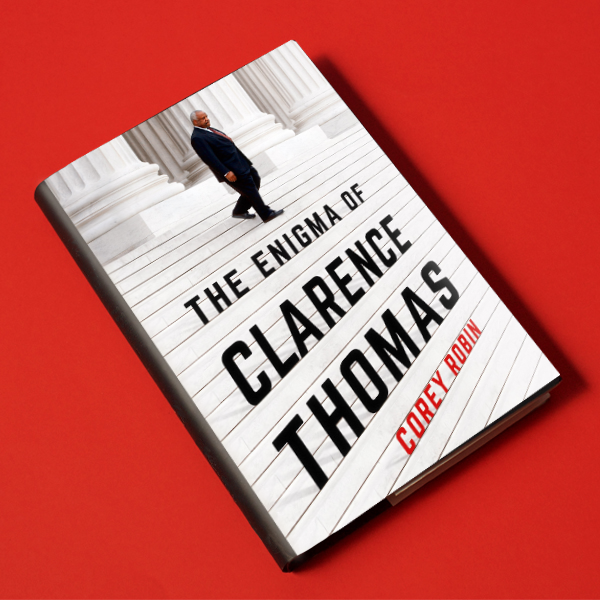The Enigma of Clarence Thomas, by Corey Robin
Couldn't load pickup availability
Most people can tell you two things about Clarence Thomas: Anita Hill accused him of sexual harassment, and he almost never speaks from the bench. Here are some things they don’t know: Thomas is a black nationalist. In college he memorized the speeches of Malcolm X. He believes white people are incurably racist.
In the first examination of its kind, Corey Robin—one of the foremost analysts of the right—delves deeply into both Thomas’s biography and his jurisprudence, masterfully reading his Supreme Court opinions against the backdrop of his autobiographical and political writings and speeches. The hidden source of Thomas’s conservative views, Robin shows, is a profound skepticism that racism can be overcome. Thomas is convinced that any government action on behalf of African Americans will be tainted by racism; the most African Americans can hope for is that white people will get out of their way.
There’s a reason, Robin concludes, why liberals often complain that Thomas doesn’t speak but seldom pay attention when he does. Were they to listen, they’d hear a racial pessimism that often sounds similar to their own. Cutting across the ideological spectrum, this unacknowledged consensus about the impossibility of progress is key to understanding today’s political stalemate.
Praise for The Enigma of Clarence Thomas
“Makes a strong case for its provocative thesis... Rigorous yet readable, frequently startling yet eminently persuasive... One of the marvels of Robin’s razor-sharp book is how carefully he marshals his evidence.... It isn’t every day that reading about ideas can be both so gratifying and unsettling, and Robin’s incisive and superbly argued book has made me think again.”
—The New York Times
“An important and well-argued book... Robin has produced a thoughtful and careful explication of Thomas’s core ideas, showing how they emerge partly from his biography and setting out their disturbing implications. This is as good a synthesis of Thomas’s intellectual world as we are likely to get.”
—The Washington Post


